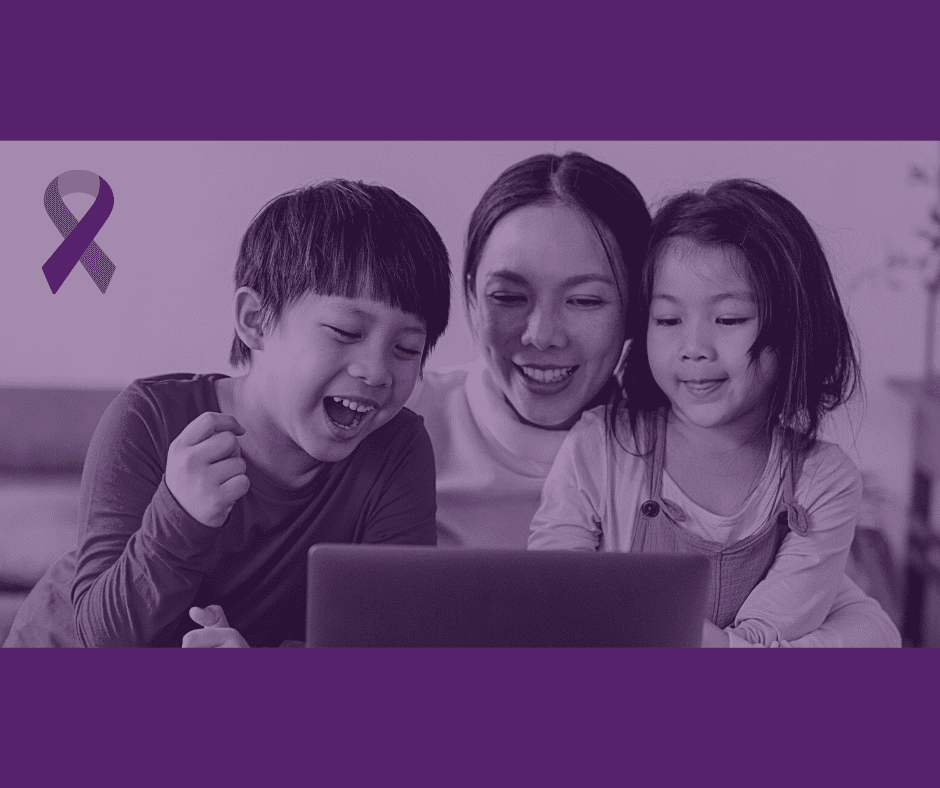By: Kalin Goble
Supporting parents, children, and families is the cornerstone of family advocacy work. Daily stressors are hard enough to navigate and process. Daily stressors in the time of COVID, more so. Life becomes even more complex for those experiencing or impacted by domestic violence (DV). Domestic violence impacts individuals at every age, across all backgrounds, but women and children face disproportionate adverse effects of this violence.
Impacts on Parents and Children
Futures Without Violence, part of the National Health Center on Domestic Violence, notes that 1 in 4 women have experienced Intimate Partner Violence (IPV). Two out of three children have encountered trauma and violence in their lives. Statistics are likely much higher than reported, and the COVID pandemic lockdowns have exacerbated DV reports.
Violence continues to impact more individuals and families than is officially documented. Stigmas often associated with DV and adverse childhood experiences (ACEs) make trust and connection difficult to establish and nurture. Experiencing DV, IPV, or other traumas also leads to a higher risk of encountering other forms of violence later in life. When domestic abuse occurs, both parents and youth feel the impact long after the incident.
October is Domestic Violence Awareness Month
The toolkit for providing support and care to impacted families is ever-growing and shifting. To bring awareness to this area, below are some resources to support domestic violence prevention and protection work:
- The Department of Defense’s 2021, United to End Domestic Abuse campaign provides resource guides and messaging for each support member of military families. These resources provide focused information for military service members, military families, and provide military-based references.
- The National Domestic Violence Hotline provides immediate support at 800-799-7233 (or 800-787-3224 for Español). The website also features a quick exit safety option for site visitors.
- The U.S. Department of Veterans Affairs provides curated resources and service information for veterans and veteran families impacted by IPV.
Supporting and Nurturing Healthy Moms and Happy Babies
OneOp welcomed Futures Without Violence consultant Rebecca Levenson for two webinars centered on uplifting New Parent Support Program and Military Family Readiness staff. Our Healthy Moms, Happy Babies I: Supporting Staff to Help Families Remotely and Healthy Moms, Happy Babies II: Virtually Supporting Parents Experiencing Domestic Abuse webinars cover strategies for centering wellness when providing support to those impacted by domestic violence and intimate partner violence.
Blog Image: Photo by Ketut Subiyanto from Pexels















